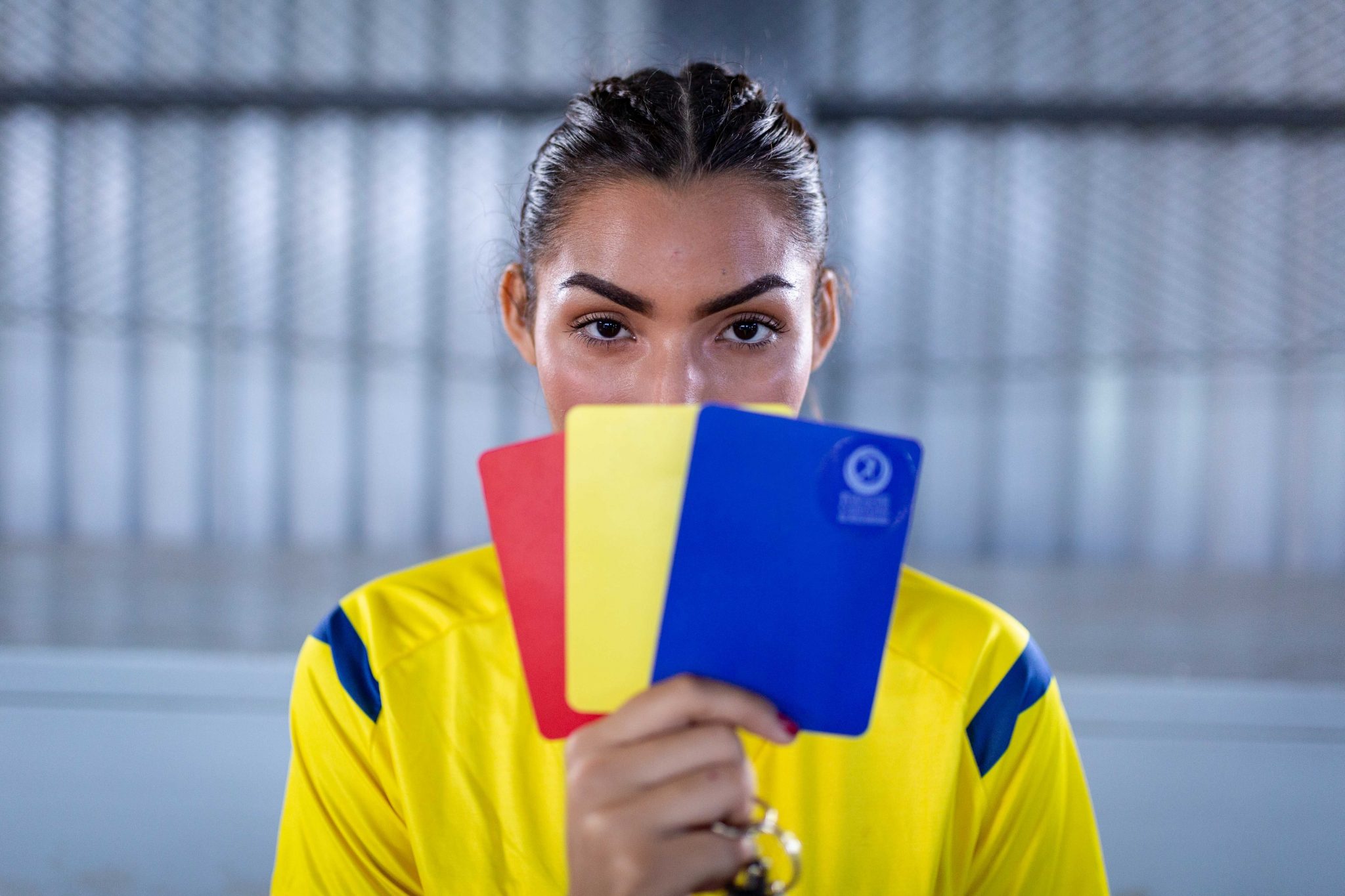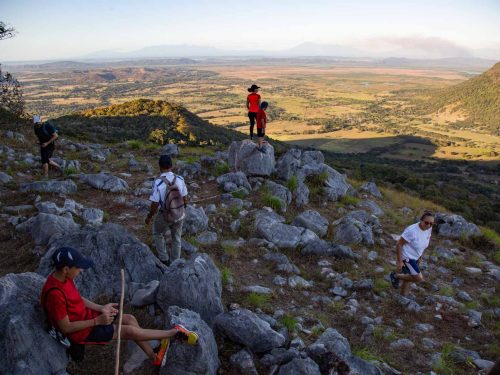
Before taking the court, she performs her usual ritual. Arianna Martínez looks in the mirror, takes a deep breath and says that everything will be alright.
Everything is ready for the handball game to begin, including the red, yellow and blue cards, the whistle and the male uniform they fitted to her body because they don’t sell sizes for women.
As she takes the court she greets the coaches and players and moves to mid-court to blow her whistle and start the game. Arianna takes long strides and keeps a serious face.
It’s like getting tunnel vision where you focus only on what is happening in the game. I have to concentrate so the game doesn’t get out of hand,” Arianna tells me in La Cruz, the canton where she was born and where she has lived for 16 years.
She is the only and first female handball referee from Guanacaste and she knows that some coaches don’t trust her because of sexist prejudices about young women, but Arianna is too focus on her career for that to bother her.
***
The course to become a referee was every weekend in San Jose, 260 kilometers from Arianna’s house.
In her bags, she always had a handmade map of the province made by her father and a pill to calm the nerves of traveling alone.
The first few times were very difficult. I was nervous and a little scared,” Arianna tells me.
The day was long. A public bus would leave La Cruz at 3:45 a.m. She took classes, refereed a game and returned home at midnight.
Arianna’s commitment to the course caught the attention of the Refereeing Committee coordinator for the Costa Rican handball federation, Randall Gutiérrez.
Randall considered her to be a dedicated, capable young girl and says he wasn’t wrong.
I noticed a lot of interest and talent. She has a good head and personality. You can see it in her gestures and the way she carries herself. She’s very confident and that is the most important thing,” he says.
After 16 hours of class and 20 games as a referee, the referee committee decided to knight her a referee with a national referee’s badge so she can call games across the country.
“Traveling was no longer tiring when I started to love being a referee. It’s not a sacrifice for me. It’s time well-spent,” Arianna says.
***
Along the way she had to face situations of sexual harassment. Once, on a bus, Arianna had to change seats because a man kept touching her legs. In a game a while ago, the bar started to shout sexist phrases like “Better go to paint your nails!” Or “Fix your hair instead of coming to whistle.”
Arianna, however, believes that these episodes are isolated, not systematic of all games. Her mother supports her.
The first thing we told her when she told us she wanted to be a referee was that she was very young and that it was very important that she prepare herself to face these difficult environments,” says her mother.
Sometimes she has to whistle matches in which her previous team plays. In the game of the sexist shouts, the bar also demanded that she be “judge and jury” of the game. But on the field, Arianna looked serious, focused, almost immutable, her mother now says.
“She has always had to be around older people in a field where most are experienced adults and she has managed to measure up,” says Jéssica.
Arianna, meanwhile, faces improper comments and misplaced invitations with an iron character. She says that once, in a game, when a player invited her out, she didn’t hesitate to sanction him with a yellow card.
***
Arianna played for the female team in Liberia before becoming a referee.
Before the 2019 national games, she had to decide whether to play or quit the team in order to call the games. She had no doubt. She wanted to be a referee.
Calling the tournament meant that her effort to become a referee was worth while.
Doing that (quitting the team) says a lot about someone,” says Randall. “You can see her real interest and dedication to this and that’s why she’s among the group of referees that have an international future,” he said. “If she continues to preserver she will be able to leave the country and pursue a career as a referee”.
Arianna is already considering becoming an international referee. The certainty with which she speaks seems to indicate that she knows the day will soon arrive.







Comments